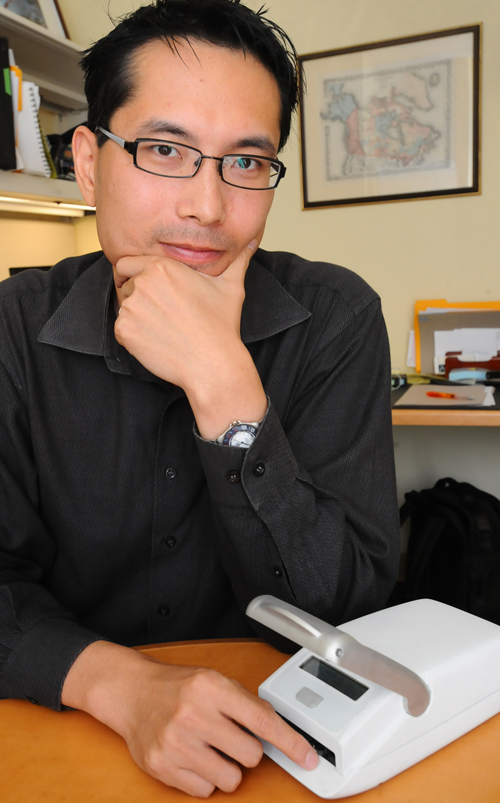Columbia University – Biomedical engineering faculty contribute to global health
Based on developments in lab-on-a-chip technology, a cost-efficient handheld device is now capable of performing complex medical tests for illnesses, sexually transmitted diseases such as HIV, or even cancer within minutes. Researchers at Columbia University have been able to provide the global health community with essentially a miniaturized science lab that simplifies and speeds up the analysis of diagnostic tests.
[youtube=http://www.youtube.com/watch?v=vpxnJM2jSVg]
T he device is called mChip and it was developed by Columbia professor Samual Sia within the biomedical engineering department at Columbia University. Using only a drop of blood, the chip is able to provide results as reliable as those obtained at research labs. The entire process takes approximately 15 minutes and the individual chips cost $2 to $3. Health care workers in developing nations will be able to use the portable system to test patients in remote villages.
he device is called mChip and it was developed by Columbia professor Samual Sia within the biomedical engineering department at Columbia University. Using only a drop of blood, the chip is able to provide results as reliable as those obtained at research labs. The entire process takes approximately 15 minutes and the individual chips cost $2 to $3. Health care workers in developing nations will be able to use the portable system to test patients in remote villages.
The device has already been successfully field tested in Rwanda as part of a partnership with the Columbia Mailman School of Public Health’s International Center for AIDS Care and Treatment Programs and the first mChip product has already been approved in Europe for the detection of prostate cancer. The research is described in more detail in Nature Medicine and on the Columbia Engineering website. Currently, there is increased interest in obtaining additional resources for the project in order to potentially commercialize the product and to market it to the global health community.
Dmitriy Timerman
_


Leave a Reply
Want to join the discussion?Feel free to contribute!